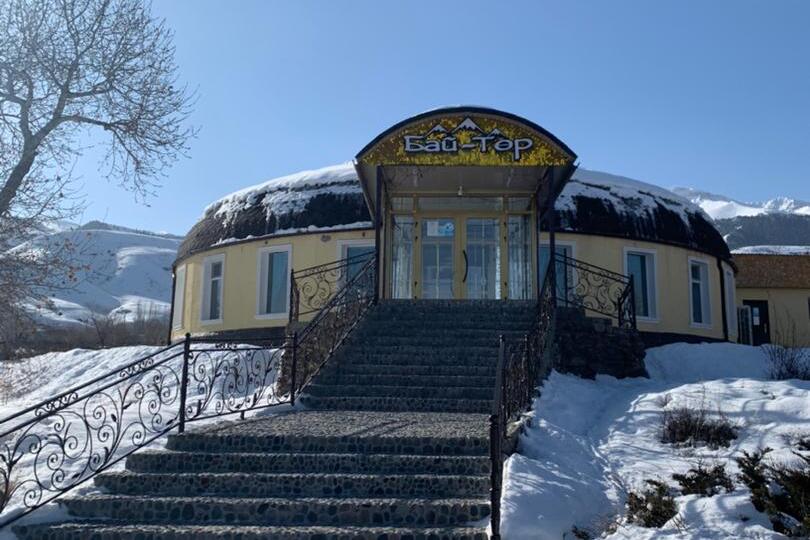
Taalaibek Osmonov, the owner of Bai-Tor Cafe, understood the significance of optimizing resources and creating a comfortable environment for his patrons. To achieve this, he conducted research to identify sources of heat loss and then implemented insulation measures for the building. Working with experts, a comprehensive insulation program was developed and successfully implemented, resulting in significant improvements in the cafe's operations.
The studies revealed that the café building experienced significant heat loss, which had a negative impact on the indoor microclimate and led to increased energy costs. In response, Taalaibek carried out insulation work, which greatly improved indoor conditions by eliminating the previously observed humidity and dampness. As a result, energy consumption decreased by 20%.
Before the insulation, the café used around 21 tons of coal each year for heating, which significantly increased operating costs and had a negative impact on the environment. After implementing all the recommended insulation measures, coal usage dropped to 15 tons per year. Additionally, the need for 13 kW air heaters to maintain a comfortable temperature was completely eliminated due to the improved insulation.
The improved temperatures and elimination of dampness in the building resulted in a significant increase in customer traffic. During winter, customers especially appreciate warm and cozy spaces for a comfortable experience. Taalaibek noticed that more clients were choosing his cafe because of the better conditions, which had a positive impact on the profitability of the business.
In the future, Taalaibek Osmonov aims to shift towards using solar panel-based heating and lighting systems. Additionally, he plans to implement green technologies to provide a warm water supply. These initiatives will decrease the cafe's reliance on traditional energy sources and lead to substantial long-term cost savings.
Benefits
The implemented insulation measures have already resulted in significant benefits: energy savings amounted to 12.344 MWh per year, and a reduction in CO2 emissions of 0.83 tons per year. Taalaibek Osmonov recommends that all hotel and restaurant business owners implement measures to improve energy efficiency. This creates a comfortable and attractive environment for visitors, which positively impacts the profitability of the enterprise. Additionally, the use of energy-efficient technologies contributes to significant resource savings and lower operating costs, ultimately leading to significant cost savings in the long run.